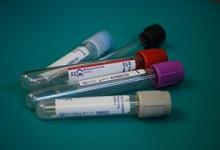EULAR: Guidance for Managing Lupus Pregnancy Save

The European League Against Rheumatism (EULAR) has published comprehensive recommendations on reproductive health and family planning for women with systemic lupus erythematosus (SLE) and/or antiphospholipid syndrome (APS) – conditions that largely affect women of childbearing age. (Citation source http://buff.ly/2aDbUtt)
"Reproductive issues are of paramount importance for women with systemic lupus erythematosus and/or antiphospholipid syndrome and should be addressed on a regular basis by healthcare providers," wrote Angela Tincani, MD, of the University of Brescia in Italy, and colleagues, in Annals of the Rheumatic Diseases.
The new EULAR guidelines, initially presented last year at the organization's annual meeting in Rome, "recognize an implicit need for change in the mindset of health professionals, shifting from caution against pregnancy towards embracement of pregnancy," the authors stated. Research on the long-term health status of the offspring of affected mothers has been generally reassuring, although sparse, the authors noted, but potentially related neurodevelopmental disorders need to be confirmed.
To optimize the care of these patients, a multidisciplinary international team developed guidelines using an evidence-based approach further refined by expert consensus.
"Several 'unmet needs' in the management of reproductive and other women's health issues may impact on personal relationships and the decision to have children," Tincani and her associates wrote. Among these concerns are pregnancy's effect on maternal disease, the impact of disease activity on fetal health, and the safety of medications during pregnancy and lactation.
"I applaud these efforts – the guidelines are so comprehensive, going from prepregnancy to pregnancy and menopause – and they are generally in harmony with the way we practice medicine in the United States," said Jane E. Salmon, MD, from the Hospital for Special Surgery in New York City, in an interview with MedPage Today.
"The issue of pregnancy and prepregnancy counseling should be front and center at the time of lupus diagnosis. From our work in the PROMISSE study it is clear that among women who have inactive disease – even with a history of renal disease – and are on low doses of prednisone and have very low proteinuria levels, 80%-plus can have uncomplicated pregnancies."
Salmon noted that today's thinking is a far cry from earlier times when lupus was considered related exclusively to female hormones, and that in the hyper-feminizing state of pregnancy "the same bad players" will be amplified at much higher levels and lupus will flare.
"We've shown now that if lupus is in remission when you get pregnant, flares are uncommon and de novo renal disease will not occur in women who did not have it before," she said.
The EULAR committee highlighted a variety of needs to be addressed in SLE/APS pregnancy, including preconception counseling and risk stratification to prevent unwanted complications. These needs included balancing the use of hormonal contraception or replacement therapy against the risks of thrombosis or teratogenesis; counseling patients about fertility preservation and the gestational effects of active disease, especially lupus nephritis; and the potential negative impact on fertility of immunosuppressive drugs and alkylating agents such as cyclophosphamide.
The committee members recommended a discussion about family planning to be held as early as possible after SLE/APS diagnosis. Planning includes risk stratification for potential adverse obstetrical outcomes, with consideration of disease activity, the autoantibody profile, previous vascular and pregnancy morbidity, hypertension, and drug use.
The guidelines also emphasize the benefits of hydroxychloroquine to reduce the risk of flares and minimize the likelihood of poor obstetrical outcomes, as well as the use of antiplatelets or anticoagulants.
Salmon noted that some of the EULAR data on risk stratification are not very strong, although there are compelling data to suggest that hydroxychloroquine taken before and during pregnancy is safe and results in better outcomes. "In a U.S. woman with inactive disease who is not on hydroxychloroquine, a physician would be hard-pressed to justify adding another drug to her regimen," she said. In addition, the data for giving aspirin to patients at preeclampsia risk are also not very strong, but the toxicity is low and it could be of significant benefit.
Patients with stable or inactive disease who are at low risk of thrombosis can safely use hormonal contraception and hormone-replacement therapy for menopausal symptoms, and can safely undergo assisted reproduction.
The authors recommended validating protocols for assisted reproduction techniques in SLE/APS patients, who have assisted reproductive technology success rates similar to those of women in the general population.
The guidelines also called for expanding predictive biomarkers for maternal disease activity during SLE pregnancy, with a focus on predicting preeclampsia, and gestational monitoring for placental insufficiency with fetal growth restriction to determine the best time for delivery and to reduce perinatal morbidity and mortality.
In addition, the authors noted that data are needed to establish the cost effectiveness of intensive surveillance with fetal echocardiography in patients with positive anti-Ro/Sjögren's-syndrome-related antigen A (SSA) and anti-La/SSB antinuclear autoantibodies and who had no previous child with congenital heart block.
For fetal monitoring, Doppler ultrasonography and fetal biometry can be considered, particularly in the third trimester, to screen for placental insufficiency and fetuses small for gestational age.
"I am not sure all physicians in the U.S. have the ability to do Doppler ultrasound and biometric parameters, so it's important to stratify by risk and balance resources in an equitable way," Salmon said.
In terms of general prenatal care, as with women in the general population, the guidelines advise supplementation with calcium, vitamin D, and folic acid for patients with SLE and/or APS -- in particular, for those showing low circulating levels of 25-OH vitamin D in trimester one and receiving glucocorticoids and/or heparin, which have detrimental effects on bone mass.
"These recommendations are an opportunity to change attitudes, provide guidance on intervention, and perhaps stimulate rheumatologists to stratify patients by risk and make sure high-risk patients are monitored by someone with expertise in this area," Salmon said.










If you are a health practitioner, you may Login/Register to comment.
Due to the nature of these comment forums, only health practitioners are allowed to comment at this time.